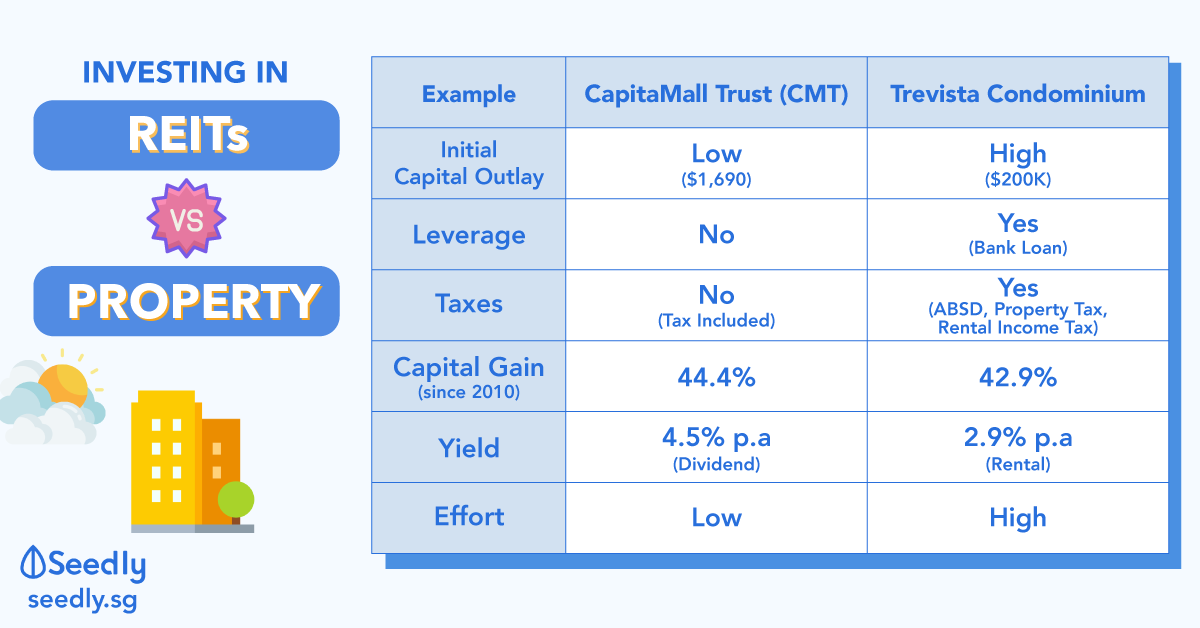Advertisement
Why are index funds/passive investments not as prevalent in Singapore than in the US?
Was in the bank yesterday with my RM, and I asked about index funds. She told me that they do not distribute index funds. Why is it not as common here in Singapore as it is in the US?
2
Discussion (2)
Learn how to style your text
Reply
Save
Luke Ho
18 Aug 2019
Founder and Director at CFX Money Maverick Pte Ltd
There are a couple of reasons, but I'll try to keep it simple.
Index Funds are based on the Efficient Market Theory, which supposes that prices are...well, accurate from efficiency.
With USD as the global currency and the SNP500 having most of the companies we know by name - this holds mostly true in the US and is backed by SPIVA - the Standard and Poor Indices vs Active where most fund managers can't outperform their benchmarks, even in a range of categories.
But it's simply not the same story in Singapore. As a result, our MSCI Singapore and STI ETF counterpart are almost equally risky (statistically speaking, e.g. standard deviation/beta) but it has hardly any yield compared to the SNP500.
So it kind of sets the standard for passive investing here, which is why some people turn to Robos etc.
As a general rule, it's better news for you if you're an active stock market picker, a value investor or if you like to experiment outside the US like myself.
Reply
Save
Write your thoughts
Related Articles
Related Posts
Related Posts
Advertisement










Indirectly, I guess you are asking why mutual funds are much more prevalent than index funds in Singapore.
In short, it is about the incentives!
In Singapore, the main distribution channel for mutual fund products is via banks and insurance firms.
My take is that it is not in their best commercial/monetary interest to distribute index funds to retail investors even though it may be the ‘best’ option for the mom and pop investor. Most advisors (be it insurance agents, RMs in banks) would pitch you a product that generates the highest commission for them (in my opinion).
The bank/insurance firms would have a commercial agreement with the asset management, to distribute their products. The bank/insurance firm would then receive some sort of monetary incentives from the asset management for every product that the bank/insurance firm sells to the customers.
Inherently, this creates a conflict of interest.
Based on the total expense ratio of most index funds in the form of ETF, I guess it is not too crazy to infer that the profit margin of an index fund is not very high. I would highly doubt that the issuer of index funds would want to decrease their profit margin by offering incentives to banks/insurance firm to distribute their products.
Hence, the reason why we are not seeing more ETFs listed on SGX (once again, my opinion).
In Singapore, the major players that distribute index funds in the form of ETF, are State Street, Nikko AM and Blackrock. Even then, the ETF product line-up offered by these players are extremely limited as compared to the US.
I am not saying that all advisors practise the above behaviour (pitching for commission) but, in my opinion, most do.
There are good advisors out there but far and few in between. Go with a fee-based advisor if you must. As always, do your own due diligence.